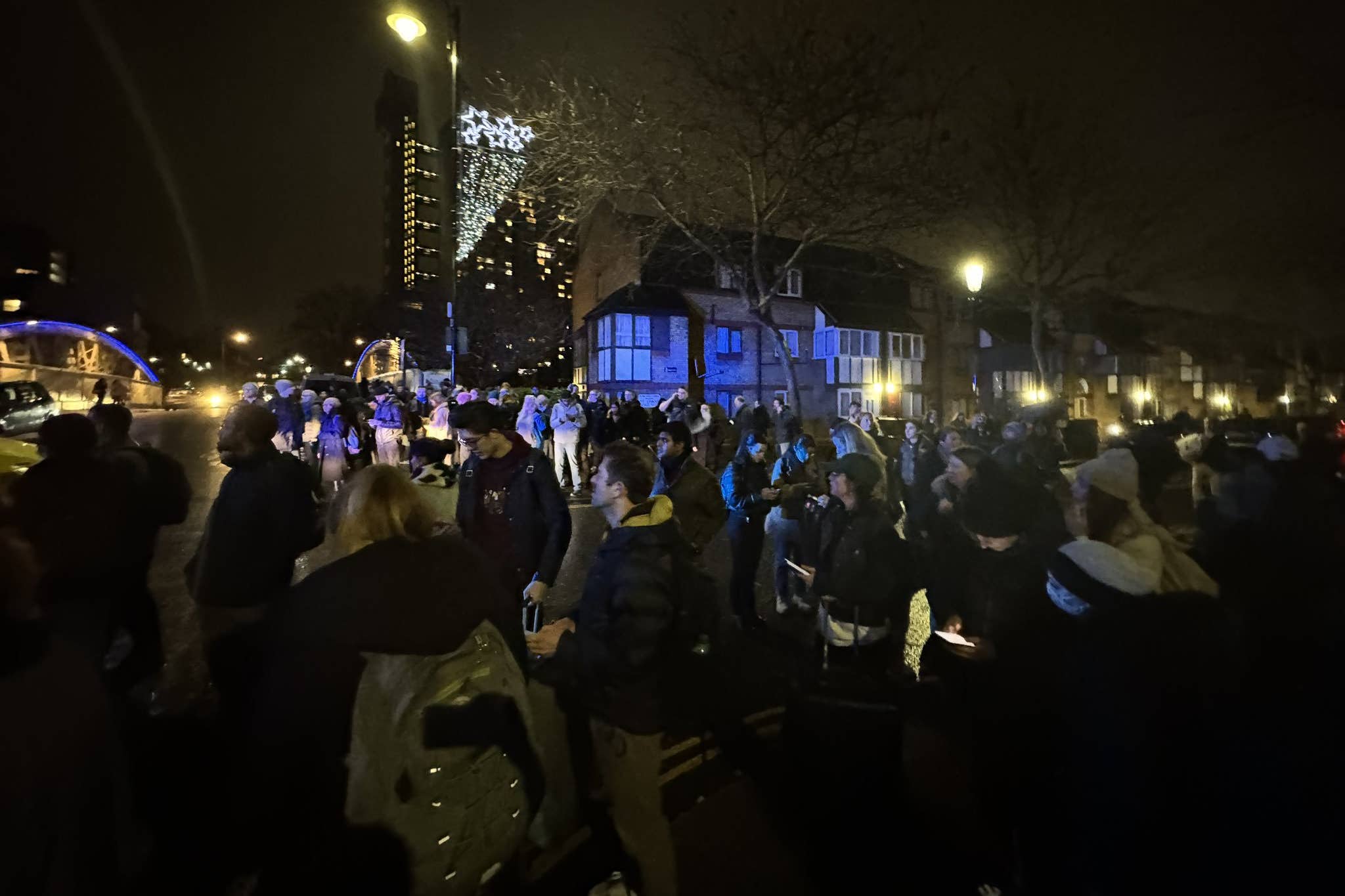Network Rail’s CEO was one of thousands of passengers stranded on Thursday
Chief executive at Network Rail, Andrew Haines, said he was trapped in a train with his son and 981 other people on Thursday.

Your support helps us to tell the story
From reproductive rights to climate change to Big Tech, The Independent is on the ground when the story is developing. Whether it's investigating the financials of Elon Musk's pro-Trump PAC or producing our latest documentary, 'The A Word', which shines a light on the American women fighting for reproductive rights, we know how important it is to parse out the facts from the messaging.
At such a critical moment in US history, we need reporters on the ground. Your donation allows us to keep sending journalists to speak to both sides of the story.
The Independent is trusted by Americans across the entire political spectrum. And unlike many other quality news outlets, we choose not to lock Americans out of our reporting and analysis with paywalls. We believe quality journalism should be available to everyone, paid for by those who can afford it.
Your support makes all the difference.Network Rail’s CEO was one of thousands of passengers stranded in trains for hours on Thursday night.
Chief executive at Network Rail, Andrew Haines, said he was trapped in a train with his son and 981 others.
Travellers reported being stuck in dark, cold carriages for more than three hours just outside Paddington Station that night, including TV presenter Rachel Riley and singer James Blunt who tweeted: “Been stuck somewhere outside Paddington for close to 4 hours now. Out of peanuts and wine.”
Around seven trains operated by the Elizabeth Line, Heathrow Express and Great Western Railway (GWR) stopped moving after overhead electrical cables were damaged in west London.
The next day, Mr Haines criticised his company’s safety procedures and customer service.
He said: “None of us would have wanted our friends or family to have had to go through it.
“By coincidence, my son was on the same train as me along with 981 other people and provided ample feedback via our family WhatsApp group.
“My heartfelt apologies to anyone caught up in last night’s problems.
“I intend to use my own painful experience in committing to improve how we deliver for our customers and support our colleagues, especially when things go wrong.”
“Yesterday evening was not one of our finest moments.”
The father, who also leads the Great British Railways Transition Team – which aims to improve and simplify train travel, added: “As an industry, we let down thousands of passengers after a hugely disruptive incident just outside of Paddington station.
“For once I had the pain of experiencing it at first hand, both as a customer and as a colleague looking to support others in a testing circumstance.
“It wasn’t pleasant and I had the benefit of being with a great crew on a train with auxiliary power.
“We failed as a system.
“Too many individual actors seeing risk from their own perspective meant it was harder than it should have been to get things done whilst maintaining safety.
“Multiple self-evacuations, because of the pace at which we were able to move or even access trains, cannot be regarded as good safety practice.
“Lastly, we have gone backwards on customer service. Tools to look after passengers that I would have used as a station manager in 1987 – before I’d even seen a mobile phone – were not available and we were hardly great at it then.
“We can do better than we did last night when we take customers’ legitimate concerns seriously.”